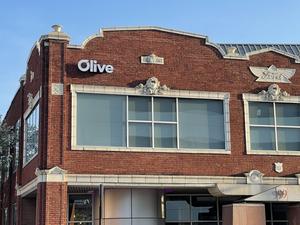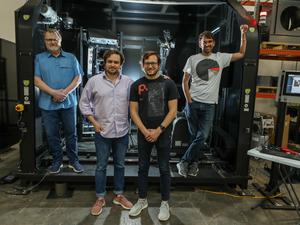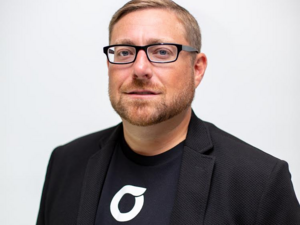
Olive AI Inc. is trying to tackle such a big problem – inefficient and wasteful healthcare spending – the health IT unicorn is nurturing future spinoff companies to take on different chunks of the task.
Olive Ventures is starting with two startups that aim to become standalone companies by year's end, building off Olive's base artificial intelligence technology and access to its 1,000 hospital and health system customers. Olive also would invest as part of any venture capital rounds.
The Columbus company started out looking for more complementary startups to acquire, then shifted after spinning out Medicaid startup Circulo, said Joel Chakra, one of Olive's earliest employees who's now general partner at Olive Ventures. Circulo Inc. raised $50 million this year to build an insurer driven by Olive's AI that improves both costs and health.
"We can find some world-class entrepreneurs and help them build companies," Chakra said. "There's so much work to do with what we're doing today at our current health systems, we would have to go hire thousands more employees just to get the expertise to focus on these specific ideas.
"We truly want to build more Circulos."
The first two are Rotera, which builds custom applications of Olive's automation tools for hospitals, and Violet, seeking to create a new kind of bank specifically for out-of-pocket healthcare expenses. The CEOs are Olive employees until they're ready to spin out with small staffs. Olive provides expertise and startup advice, but it's not a studio in the physical sense: Rotera will be based in Denver and Violet in Raleigh, North Carolina.
Upcoming concepts deal with clinical trials and wearable technology, Chakra said.
Erick McKesson joined Olive in 2019 as vice president of product, working from Denver as one of the first remote employees. (Last year Olive embraced a fully distributed workforce model.) This year he started working on Rotera, launching its first products in spring.
"Olive is actually a customer of Rotera's," McKesson said. "They want to be – and should be – primarily focused on the technology and less on the service."
Rotera could soon grow to about 40 people, mostly engineers, developing both off-the-shelf and custom "loops" – Olive's version of an app, training its artificial intelligence to do specific tasks like look up codes needed for insurance claims.
Violet CEO Josh Holley worked six years in fintech startups after starting his career at consulting firm EY. This year he started talking to others in fintech about his idea for a healthcare banking system – helping patients avoid huge medical debt and hospitals get their bills paid – when Chakra invited him to build within Olive.
"We'll certainly miss being part of the day-to-day of Olive once we spin out," Holley said. "It's just a fun place to work, and very important work going on.
"Olive is young and nimble and willing to try new things, while having the stability of a company whose last valuation is $4 billion," he said. "We have the best of both worlds. I don’t have to worry about my next paycheck, and I don’t have to worry about Olive moving too slow and not wanting to take some risks with me."
McKesson had worked for one of the largest electronic health record makers, then went into consulting before Olive.
Most companies demand non-compete agreements or cut off access to core technology if someone tries to build something branching off from it, McKesson said, but Olive embraces the idea.
"We're not going to solve healthcare unless everything is coordinated and interoperable," McKesson said. "The message from all levels (at Olive) is: That's great, we're all solving the same problem. Go do it."







